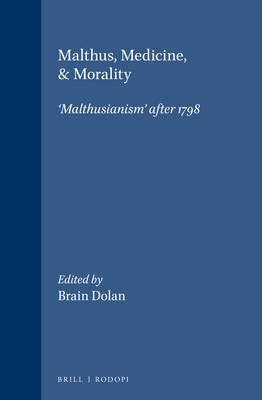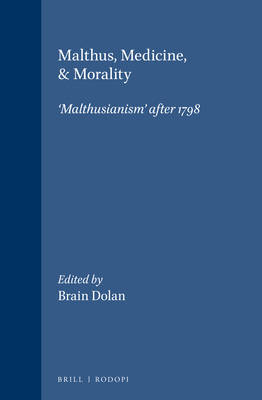
- Afhalen na 1 uur in een winkel met voorraad
- Gratis thuislevering in België vanaf € 30
- Ruim aanbod met 7 miljoen producten
- Afhalen na 1 uur in een winkel met voorraad
- Gratis thuislevering in België vanaf € 30
- Ruim aanbod met 7 miljoen producten
Zoeken
€ 50,45
+ 100 punten
Omschrijving
Thomas Robert Malthus's reputation has lately been rehabilitated in the fields of social biology, demography, environmentalism, and economics. In the midst of this current interest and with the chance to mark the occasion of the bicentenary of the first edition of the Essay on Population (1798), the contributors to this volume take this timely opportunity to examine the historical conditions in which Malthus constructed his theory, and in which the concept of a 'Malthusian' and 'Neo-Malthusian' philosophy first emerged. The essays redress the balance between Malthus's original argument, the immediate responses to Malthus by medics and theologians in Britain and on the Continent, and some of the ways that his ideas were later attacked, appropriated, or misrepresented. Included here are essays that not only re-evaluate the development of Malthus's theory, but also offer critical perspectives on the generation of the 'Malthusian league' and debates about birth control in Britain and on the Continent, and Malthus's influence on the emergence of social science and Darwinian evolutionary biology.
Specificaties
Betrokkenen
- Uitgeverij:
Inhoud
- Aantal bladzijden:
- 256
- Taal:
- Engels
- Reeks:
- Reeksnummer:
- nr. 59
Eigenschappen
- Productcode (EAN):
- 9789042008410
- Verschijningsdatum:
- 1/01/2000
- Uitvoering:
- Paperback
- Formaat:
- Trade paperback (VS)
- Afmetingen:
- 155 mm x 230 mm
- Gewicht:
- 394 g

Alleen bij Standaard Boekhandel
+ 100 punten op je klantenkaart van Standaard Boekhandel
Beoordelingen
We publiceren alleen reviews die voldoen aan de voorwaarden voor reviews. Bekijk onze voorwaarden voor reviews.










